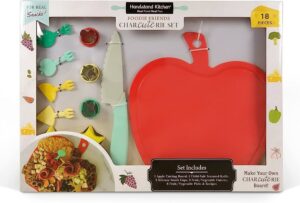A blender and a food processor are both kitchen appliances that can be used to prepare a variety of dishes. However, they differ in terms of size, blades, functions, power level and more. A blender is usually smaller than a food processor and has two or four blades located on the bottom which rotate rapidly to liquefy ingredients.
The speed settings allow you to control how finely chopped or blended your food will be. On the other hand, a food processor is larger with multiple blade attachments allowing for various slicing and shredding options as well as chopping nuts etc. It also typically has higher power levels when compared to blenders making it able to handle tougher jobs like kneading doughs or crushing ice cubes.
When deciding between a blender and food processor, the primary consideration should be what you plan to make in it. If you are primarily looking for something that will help you create smoothies or other blended drinks, then a blender is your best option. On the other hand, if you need to chop ingredients or mix doughs for baking purposes, then a food processor is probably more suitable.
Both machines have their advantages and disadvantages depending on what type of recipes you are making – so think carefully before investing in one!
Which is Better Blender Or Food Processor?
When it comes to deciding between a blender and a food processor, the answer is not as simple as you might think. Blenders are great for making smoothies and purées, while food processors are more adept at chopping, slicing, shredding and kneading dough. Depending on what you need to make in the kitchen – whether it’s a puree or soup or salsa – either one can be used with success.
If you’re looking for something that will pulverize foods into silky smooth textures then a blender is the way to go. Blenders have powerful motors that quickly liquify ingredients into sauces, soups or smoothies – usually in mere seconds! They come in many shapes and sizes from regular countertop blenders to immersion blenders (hand-held) so there’s sure to be something out there that fits your needs perfectly.
On the other hand if you’re looking for precise cutting power then look no further than the mighty food processor! Food processors excel at tasks like slicing vegetables evenly into thin strips (for salads!) or grating cheese finely enough for pizzas. Plus they also handle tougher jobs such as kneading bread dough which would require far too much effort by hand!
There are also mini-choppers available now which offer some of these same features but in smaller packages – perfect for small kitchens with limited space.
In conclusion both blenders and food processors have advantages depending on what task is being performed so when choosing between them consider your current needs first before purchasing either device– one may just do the job better than another!
Can a Blender Be Used As a Food Processor?
Yes, a blender can be used as a food processor! A powerful blender with sharp blades and variable speeds is the most versatile kitchen appliance – it can do just about anything you need it to in terms of processing food. Whether you’re making soups or sauces, purees or smoothies, chopping vegetables for stir-fries or salsa, grinding nuts for nut butter, blending cheeses for queso dip – all these tasks and more are possible with a good blender.
The best part is that blenders are usually much less expensive than food processors yet they provide many of the same functions. So if you’re looking to save money but still get results similar to what you would expect from a food processor – then consider investing in a high quality blender instead.
Is a Blender Or Food Processor Better for Nut Butter?
When it comes to making nut butter, the debate between a blender and food processor is alive and well. Blenders offer a more powerful motor than food processors, allowing them to grind nuts into smooth paste with ease. On the other hand, food processors come equipped with various blades that can chop nuts finely before blending them into a creamy consistency.
So which one should you choose? Both have their advantages, but the decision ultimately depends on your preferences and budget.
If you’re looking for convenience and affordability, go for a blender.
They are usually smaller in size than food processors so they take up less space in your kitchen cabinets. Plus they don’t require as much set-up or cleaning time since all you need to do is toss in some nuts plus oil (if desired) then blend away! However, if you want finer texture results or prefer having multiple blade options at your fingertips when preparing nut butter then opt for a food processor instead – just be prepared to pay more upfront cost due to its larger size and higher wattage motor power requirements.
Is It Better to Make Hummus in a Food Processor Or Blender?
Making hummus in a food processor or blender is largely a matter of preference, as both options will yield good results. If you’re looking for a smooth and creamy texture with minimal effort, then the food processor is your best bet. It has sharp blades that can easily blend chickpeas and other ingredients into a paste without much additional work on your part.
On the other hand, if you prefer chunkier hummus with more texture, then the blender may be the better choice as it won’t break down everything quite so finely. Additionally, blenders are usually easier to clean than food processors since they don’t have multiple separate parts that need to be taken apart and reassembled after use. Ultimately, both methods are capable of producing delicious homemade hummus – it’s just up to you which one works best for your needs!
:max_bytes(150000):strip_icc()/__opt__aboutcom__coeus__resources__content_migration__simply_recipes__uploads__2019__11__Blender-or-Processor-LEAD-07-4167e6d93e4a4595857189911df69ed0.jpg)
Credit: www.simplyrecipes.com
Food Processor Blender Combo
A food processor blender combo is a convenient kitchen appliance that combines the capabilities of a traditional blender and food processor into one versatile machine. This type of appliance typically features multiple speed settings, reversible blades, and various attachments to chop, mix, blend, and puree ingredients quickly for baking or cooking tasks. Food processor blenders are functional and efficient tools for those who need an all-in-one device for their kitchen needs.
Can I Use a Blender Instead of a Food Processor
Using a blender instead of a food processor is possible, though the results may not be as precise. Blenders are generally better suited for recipes that require liquid ingredients, such as soups and smoothies, while food processors are designed to chop and dice solid foods like vegetables or nuts. If you only need to process small amounts of ingredients at once, however, a blender can work in place of a food processor.
Blender Vs Food Processor Reddit
Blender vs. Food Processor Reddit threads are a great resource for finding out what fellow home cooks think about these two kitchen appliances. Although both blenders and food processors have their pros and cons, Reddit users tend to agree that blenders are better suited for making smoothies, soups, and other liquid-based recipes while food processors are best used for more complex tasks like chopping vegetables or pureeing nuts. No matter which appliance you use, it’s clear that having either one in your kitchen will help make meal prep faster and easier!
Conclusion
In conclusion, both blenders and food processors have their own unique functions and advantages. Blenders are great for making smoothies and other liquid-based foods, while food processors can be used to chop vegetables or grind nuts. Ultimately, the decision of which one is right for you will depend on what type of tasks you need it to perform.
If you’re looking to make a variety of recipes that require both blending and processing capabilities, then a combination blender/food processor may be your best option.







